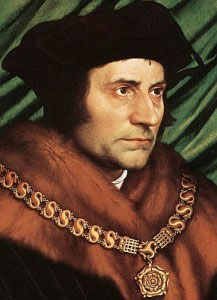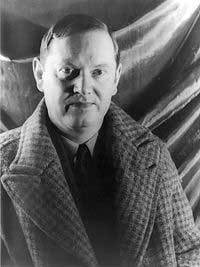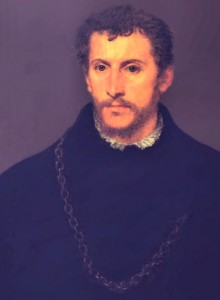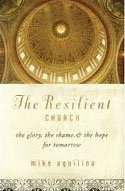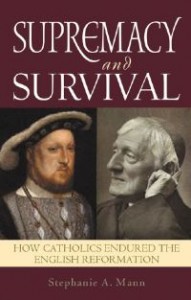I leave it to Omar F. A. Gutierrez to write so well on the life,  times, and death of this great saint.
times, and death of this great saint.
You may perhaps remember a scene from Braveheart with Robert the Bruce and his father the leper.
When his son first brings him news about the rebellion led by William Wallace, a commoner, the father instantly devises a plan by which the Bruce clan can gain favor with the Scots and with the English. You get the feeling that Robert is a bit taken aback by the so easy and cold calculation of his rotted father.
He says,
This Wallace. He doesn’t even have a knighthood. But he fights with passion, and he is clever. He inspires men.
His father replies:
You admire him. Uncompromising men are easy to admire. He has courage. So does a dog. But you must understand this: Edward Longshanks is the most ruthless king ever to sit on the throne of England, and none of us, and nothing of Scotland, will survive unless we are as ruthless, more ruthless, than he.
“Uncompromising men are easy to admire.†There is in this world, and it seems more so today, a habit of admiring the compromising fellow. With the ubiquitous dictatorship of relativism that oppresses so many minds, it only makes sense that the general public would take offense at anyone who dares stand up for something with uncompromising stolidity.
The holder of objective truth claims is – so the sages of Manhattan and Melrose Place tell us – no different than the Nazi who insists on the claim to racial purity or the Islamic bomber who literally does cling to his religion and guns.
For this reason, the figure of St. Thomas More, whose feast it is today, can be such a 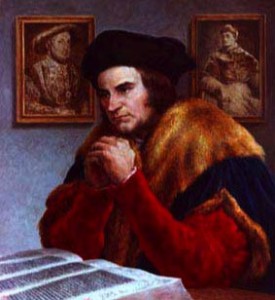 perplexing figure for the modern mind. And even the Catholic who consumes their breakfast whilst pouring over the latest moto proprio can miss this astonishingly great man. I have to admit having skipped over him in my studies, chalking him up with all the other saints and blesseds who gain God’s favor by losing their heads. But St. Thomas More is more than just a martyr.
perplexing figure for the modern mind. And even the Catholic who consumes their breakfast whilst pouring over the latest moto proprio can miss this astonishingly great man. I have to admit having skipped over him in my studies, chalking him up with all the other saints and blesseds who gain God’s favor by losing their heads. But St. Thomas More is more than just a martyr.
He’s an example of such exquisite lack of compromise that he can teach us a great deal about the Catholic Social Doctrine we long to understand and live out. (more…)
Tags: children, england, english reformation, love, martyr, martyrdom, protestant reformation, tudors
This entry was posted on Saturday, June 22nd, 2013 at 6:32 am
You can follow any responses to this entry through the RSS 2.0 feed.
St. John Fisher, 1460-1535
from the Catholic Information Network on St. John Fisher
John Fisher, born at Beverley, Yorkshire, was the son of a prosperous mercer who died in 1477. About 1482 the boy’s mother sent him to Cambridge University where he distinguished himself as a scholar. He was ordained in 1491 on the title of his Fellowship of Michaelhouse (now incorporated in Trinity College). After studying theology for ten years, he took his D.D. in 1501, and was later recognized as one of the leading theologians of Europe.
His university soon discovered his gifts as an administrator; he held in turn the offices of proctor, vice-chancellor and chancellor, and in 1514 he received the unique distinction of being elected chancellor for life. It was in the course of his university duties that, in 1494, he first met the Lady Margaret Beaufort, mother of Henry VII. He became her confessor and advised her on the charitable uses of her great wealth. It was at his suggestion that a preachership was endowed at Cambridge and Readerships in Divinity in both universities. He was largely responsible for her decision to refound and endow Godshouse as Christ’s College, and, after her death in 1509, he carried out her wishes in founding St. John’s College, to which he transferred lands given to him by the Lady Margaret.
He was made bishop of Rochester in 1504, and he ruled that poorest of sees for thirty years; he was a truly pastoral bishop, encouraging his priests by his manner of life and by his interest in their welfare. He was a noted and assiduous preacher, and he did all he could to provide well-instructed priests who could preach to the people.
It was due to his influence that Erasmus was brought to Cambridge as lecturer in Greek. He and Sir Thomas More became close friends of John Fisher, and there is a record of the three being together at Rochester in 1516. Sir Thomas More became High Steward of Cambridge University in 1525. He and John Fisher had been drawn closer together at this period by the call to combat the Lutheran heresy. The bishop wrote his Confutatio (1523) in Latin, a book for theologians by a theologian, which had a wide circulation on
the continent; the layman wrote his Dialogue Concerning Heresies (1528) in English for the common reader. It may be noted that in his sermons and writings against heretics, John Fisher never used the abusive language of contemporary controversy; he relied on reason and persuasion to bring back the prodigals.
The year 1527 was fateful to England, for it was then that Henry VIII took the first steps towards seeking the annulment of his marriage with Catherine of Aragon. She had married his elder brother Arthur in 1501; he died six months later. Catherine always maintained that the marriage had not been consummated. A papal dispensation allowed Henry VIII to marry his brother’s widow in 1509. The lack of a male heir turned his thoughts to the dissolution of his marriage; he argued that the papal dispensation had no validity. Cardinal Wosley was instructed to seek the opinion of John Fisher, whose prestige as a man of holy life and of great learning gave exceptional weight to his views. After studying the problem thoroughly he came to the conclusion that the papal dispensation was valid, and therefore that Henry and Catherine were man and wife in the eyes of the church. From that position he never moved in spite of the pressure brought to bear on him by king and cardinal. He was not content with passive opposition, but in the legatine court set up to try the issue, and from the pulpit, he defended the queen, although he knew that Henry regarded opposition to his will as a form of treason.
An attempt to implicate John Fisher in the fate of the Nun of Kent failed; she had prophesied against the king. A more certain weapon was provided by the Act of Succession of 1534. This declared the king’s marriage to Catherine void, and his subsequent marriage to Anne Boleyn to be lawful; the succession was settled on her children. All had to take an oath accepting the whole Act. When the oath was tendered to
John Fisher he refused to take it; so did Sir Thomas More. Both were prepared to accept the succession as determined by Parliament, but not that part of the Act which implied a denial of the pope’s authority, inasmuch as it declared the papal dispensation invalid.
On April 17th, 1534 Bishop John Fisher and Sir Thomas More were committed to the Tower. They were kept apart.
John Fisher was sixty-five years of age when he was imprisoned; he was suffering from a wasting sickness and was clearly nearing his end. Nothing shows the king’s vindictiveness more than his relentless persecution of this aged man stricken by a fatal illness. On May 20th, 1535, the pope created John Fisher Cardinal-priest of the title of St. Vitalis. This so infuriated the king that he hurried forward the proceedings against the new cardinal. (more…)
Tags: bishop, english reformation, John Fisher, martyr, martyrdom, martyrs of england, priests, protestant reformation
This entry was posted on Saturday, June 22nd, 2013 at 6:00 am
You can follow any responses to this entry through the RSS 2.0 feed.
I love the writing of Evelyn Waugh…his prose are some of the best of our time, if not of all time.  And when that talent is used to pen a biography of the heroic English martyr, Edmund Campion, a tremendous blessing has been given to all who gleen it’s pages.  What a story…what a life.  We are joined once again by the wonderful Vivian Dudro to discuss this incredible work, as well as the life and times of this great saint.
[powerpress]
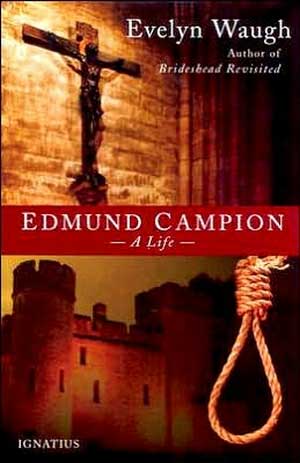 You can find the book here
You can find the book here
From the description:
Evelyn Waugh presented his biography of St. Edmund Campion, the Elizabethan poet, scholar and gentleman who became the haunted, trapped and murdered priest as “a simple, perfectly true story of heroism and holiness.â€
But it is written with a novelist’s eye for the telling incident and with all the elegance and feeling of a master of English prose. From the years of
success as an Oxford scholar, to entry into the newly founded Society of Jesus and a professorship in Prague, Campion’s life was an inexorable progress towards the doomed mission to England. There followed pursuit, betrayal, a spirited defense of loyalty to the Queen, and a horrifying martyr’s death at Tyburn.
Tags: catholic, catholic podcast, catholic prayer, cathollc spirituality, edmund campion, english martyrs, english reformation, Evelyn Waugh, holiness, ignatius press, mission
This entry was posted on Monday, July 2nd, 2012 at 12:47 pm
You can follow any responses to this entry through the RSS 2.0 feed.
 Episode 7– Reformation Inside and Out
Episode 7– Reformation Inside and Out
The Resilient Church with Mike Aquilina, offers a fascinating look at the trials and triumphs of the Catholic Church over the past two thousand years. Fast-paced sketches of critical periods in church history give readers perspective on the challenges faced by the church today. Mike Aquilina does not shrink from the realities of the past, including badly behaved leaders and those who betrayed the Lord. Yet he also leaves us all with well-founded hope for the future: God remains faithful in every circumstance and fulfills his promise to remain with his church always. Hosted by Kris McGregor
Also visit Mike’s “Discerning Hearts†page for more audio downloads and information!
Tags: catholic, catholic podcast, catholic prayer, cathollc spirituality, english reformation, mike aquilina, protestant reformation, Resilient Church
This entry was posted on Tuesday, August 2nd, 2011 at 9:28 am
You can follow any responses to this entry through the RSS 2.0 feed.
“Supremacy and Survival: How Catholics Endured the English Reformation” is an outstanding introduction to the persecution of Catholics began in 16th century England. Lasting over 250 years, the effects can still be felt in some ways even in today’s world. But through the witness of great saints such as St. Thomas More and St. John Fisher to Blessed John Henry Newman, Catholics in England, as well as throughout the rest of the world, have been encouraged and inspired to continue standing for the truths found in the Catholic Church, which ultimately reflect the great Truth, who is Our Lord and Savior Jesus Christ. Stephanie Mann does a beautiful job of presenting this period and many of those heroic lives in her work.
outstanding introduction to the persecution of Catholics began in 16th century England. Lasting over 250 years, the effects can still be felt in some ways even in today’s world. But through the witness of great saints such as St. Thomas More and St. John Fisher to Blessed John Henry Newman, Catholics in England, as well as throughout the rest of the world, have been encouraged and inspired to continue standing for the truths found in the Catholic Church, which ultimately reflect the great Truth, who is Our Lord and Savior Jesus Christ. Stephanie Mann does a beautiful job of presenting this period and many of those heroic lives in her work.
To learn more visit Stephanie Mann’s website
[powerpress]
Tags: 16th century, catholic, catholic church, catholic podcast, catholic prayer, cathollc spirituality, england, english reformation, John Fisher, john henry newman, st john fisher, st thomas more, Stephanie Mann, work
This entry was posted on Tuesday, October 12th, 2010 at 4:14 am
You can follow any responses to this entry through the RSS 2.0 feed.

